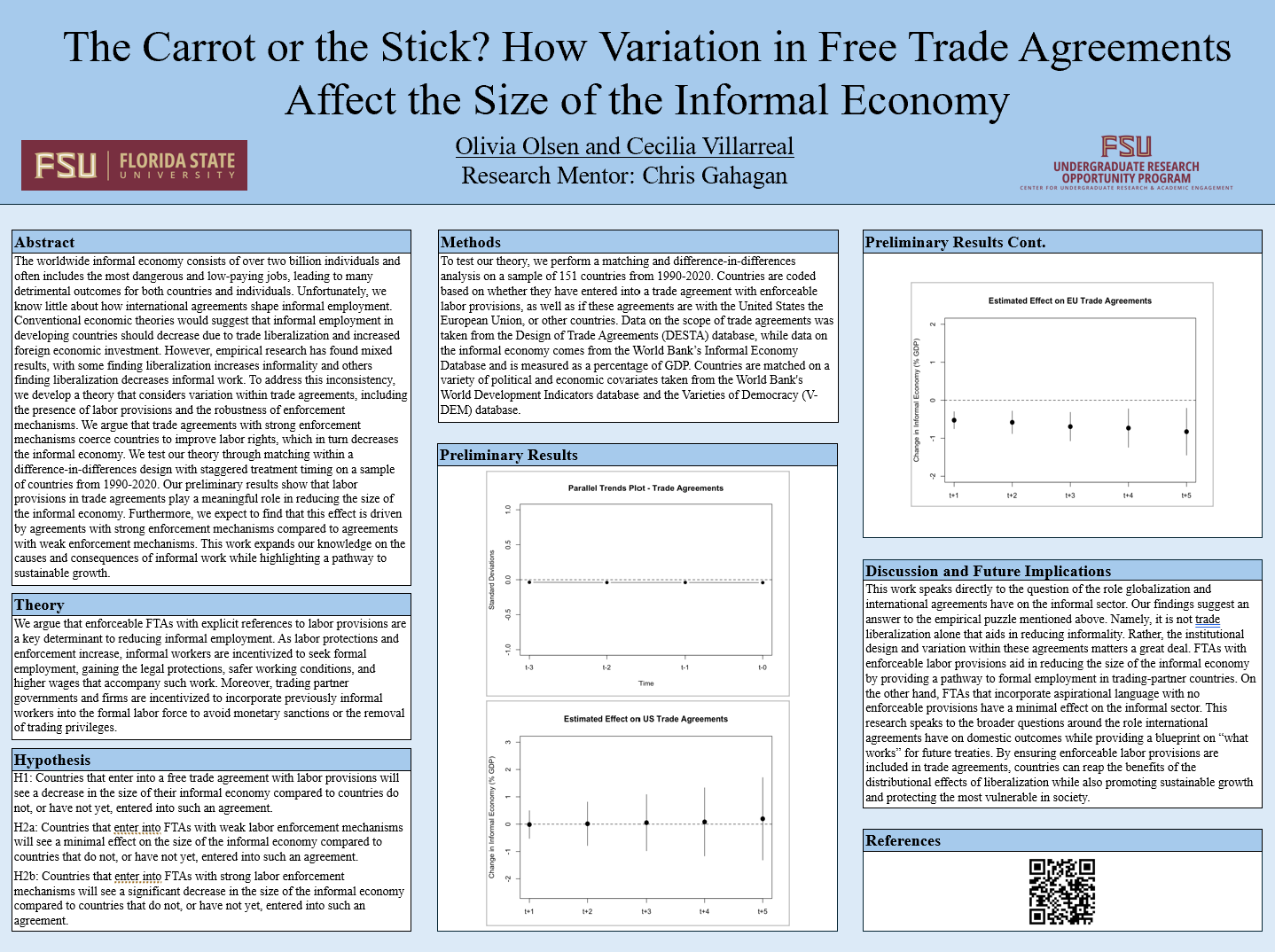Research Symposium
25th annual Undergraduate Research Symposium, April 1, 2025
Olivia Olsen Poster Session 4: 3:00 pm - 4:00 pm/ Poster #190
BIO
Hello! I am currently a second-year honors student pursuing a double major in Political Science and Economics, with minors in French and General Business. My research interests include politics and international economies, specifically the interaction between the two and how these effects can create sustainable economic growth. I plan on studying abroad in France to complete a French language program, as being immersed in a different culture can create new global perspectives. In the future, I would like to pursue an MBA with a concentration in economics and eventually work in the financial sector.
The Carrot or the Stick? How Variation in Free Trade Agreements Affect the Size of the Informal Economy
Authors: Olivia Olsen, Chris GahaganStudent Major: Political Science/ Economics
Mentor: Chris Gahagan
Mentor's Department: Political Science Mentor's College: College of Social Sciences & Public Policy Co-Presenters: Cecilia Villarreal
Abstract
The worldwide informal economy consists of over two billion individuals and often includes the most dangerous and low-paying jobs, leading to many detrimental outcomes for both countries and individuals. Unfortunately, we know little about how international agreements shape informal employment. Conventional economic theories would suggest that informal employment in developing countries should decrease due to trade liberalization and increased foreign economic investment. However, empirical research has found mixed results, with some finding liberalization increases informality and others finding liberalization decreases informal work. To address this inconsistency, we develop a theory that considers variation within trade agreements, including the presence of labor provisions and the robustness of enforcement mechanisms. We argue that trade agreements with strong enforcement mechanisms coerce countries to improve labor rights, which in turn decreases the informal economy. We test our theory through matching within a difference-in-differences design with staggered treatment timing on a sample of countries from 1990-2020. Our preliminary results show that labor provisions in trade agreements play a meaningful role in reducing the size of the informal economy. Furthermore, we expect to find that this effect is driven by agreements with strong enforcement mechanisms compared to agreements with weak enforcement mechanisms. This work expands our knowledge on the causes and consequences of informal work while highlighting a pathway to sustainable growth.
Keywords: Informal Economy, Free Trade Agreements (FTAs), Labor Provisions, Enforcement Mechanisms

